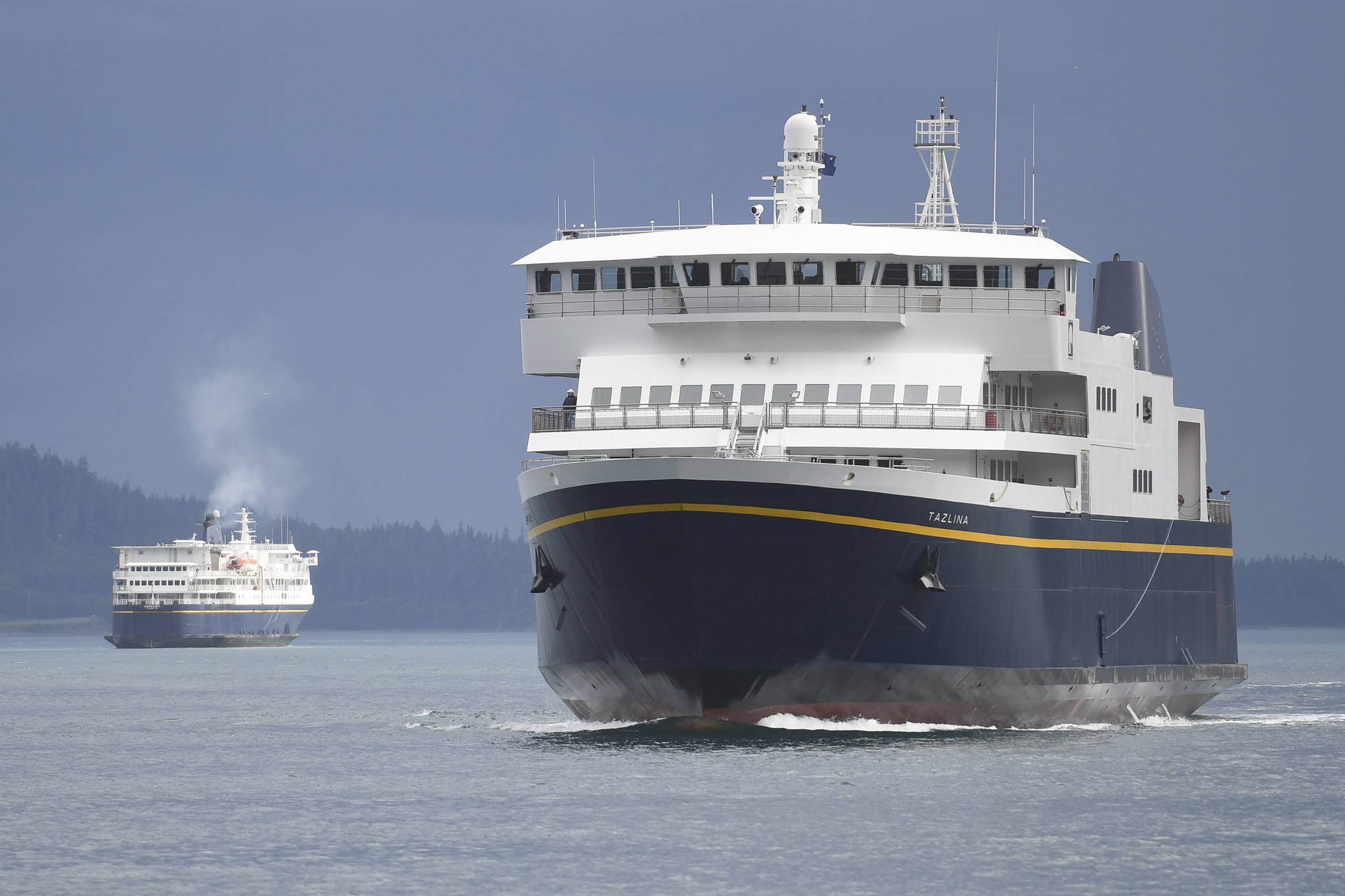The Alaska Marine Highway System will resume temporary service to Prince Rupert, British Columbia, with sailings scheduled for Oct. 29 and Nov. 25, according to the Department of Transportation and Public Facilities.
Service between Prince Rupert and Ketchikan was suspended Oct. 1 after officials in the U.S. and Canada failed to reach an agreement on how to provide armed security for U.S. Customs officials at the checkpoint.
In March, U.S. Customs and Border Protection announced armed security would be required in order for the checkpoint to operate. Customs agents can’t carry weapons in a foreign country and so Canadian security will be required to be on site while customs officials are working.
The problem was the State of Alaska would have to foot the bill to have Royal Canadian Mounted Police officers provide security for U.S. Customs officials.
That would have cost roughly $188,000 a year, according to Alaska Public Media, which was not feasible for the state under current fiscal conditions.
According to DOT&PF Communications Director Meadow Bailey, the city of Prince Rupert will pay for its officers to be present for the two scheduled trips, but beyond that is yet to be determined.
The agreement came after negotiations between Prince Rupert city officials, Alaska state legislators and representatives from the AMHS. At one point, Prince Rupert Mayor Lee Brain came to Juneau and met with DOT&PF Commission John MacKinnon and chief of staff for Gov. Mike Dunleavy, Ben Stevens.
That discussion produced a short-term agreement where Prince Rupert would provide armed security but only for the two scheduled trips. Reaching a long-term agreement is complicated by new regulations handed down following the Land, Rail, Marine, and Air Transport Preclearance Agreement (LRMA) signed between the U.S. and Canada in August.
That agreement requires increased security at “preclearance” checkpoints like Prince Rupert.
Preclearance
Preclearance is when CBP provides the same service they would at state-side ports of entry in a foreign nation before U.S.-bound passengers begin their journey.
According to the CBP website, preclearance helps to screen for security threats and eases the number of people going through U.S. checkpoints.
The problem is the new requirements for preclearance facilities will require substantial investment from the State of Alaska.
“Everywhere that (CBP) has a preclearance facility, it’s been the responsibility of the users to build the facility,” MacKinnon said in a phone interview Wednesday. “We do not have the funds. The budget for the ferry system has been cut considerably in the past year.”
Because CBP preclearance checkpoints are secure facilities, details of the requirements have not been widely disclosed to DOT staff. AMHS General Manager Captain John Favley was given the details, MacKinnon said, but was ordered not to share them with other staff.
According to a press release from DOT&PF, the department was given 60 days to commit to “substantial facility modifications at either the AMHS Prince Rupert or Ketchikan terminals.”
But under the current financial situation, DOT&PF is not sure it has the funds to complete those modifications.
“It’s going to take a meeting with the Department of Transportation, the governor’s office, Prince Rupert, possibly the provincial government (of British Columbia),” MacKinnon said. “I want some reasonable expectation that we can commit to this.”
Complications
Even after DOT&PF signed the agreement to upgrade the facilities, it could still pull out if it decides it can’t complete the project. But MacKinnon said he wouldn’t want to sign unless he was sure the project could be completed.
The new LRMA requirements apply only to preclearance facilities, not to state-side “post-clearance” facilities. While Ketchikan has CBP facilities, those are designed for cruise ship passengers, Bailey said, and not equipped to handle the vehicles and cargo transported via ferry.
Meeting CBP requirements for a post-clearance in Ketchikan would require the construction of an entirely new facility, according to MacKinnon, which DOT&PF also does not have the money for.
McKinnon is hopeful that a preclearance facility can be completed, potentially with help from the Canadians.
“We can’t do this unilaterally,” MacKinnon said. “There’s a good argument to be made that (the ferry connection) is an economic benefit for Prince Rupert.”
McKinnon said that Mayor Brain had expressed a desire to see the ferry route preserved but that the details have not been discussed.
“We have not had those conversations yet,” MacKinnon said, adding that he was hoping to travel to Prince Rupert at the end of the month to meet with Canadian officials.
MacKinnon said that he wanted to see what the Canadians were willing to do. He said that he wasn’t willing to say that if there isn’t some sort of buy-in from the Canadian side the upgrades wouldn’t happen, but added that the situation was extremely complicated.
DOT&PF has until Dec. 5 to sign an agreement with CBP committing to the upgrades.
• Contact reporter Peter Segall at 523-2228 or psegall@juneauempire.com.

